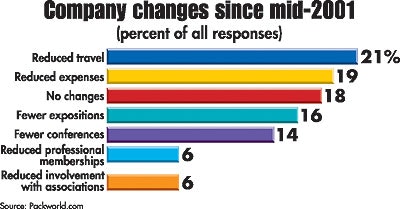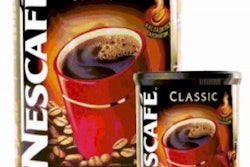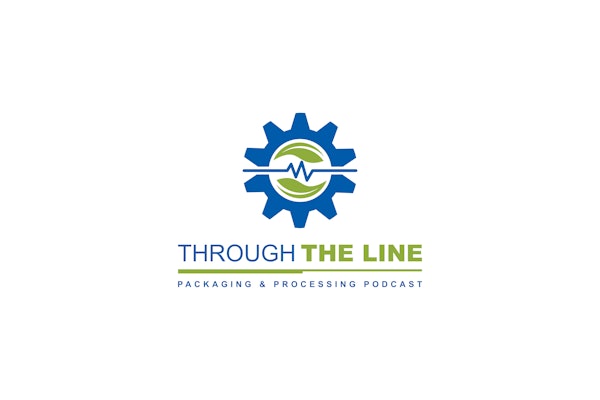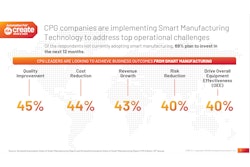If packaging departments within companies were only modestly affected by the recession in the United States since mid-2001, the same isn’t true for packaging professionals. Although the results were far from unanimous, many reported changes in the ways they performed their jobs, some changes in compensation, and often a heavier workload.
That last result seems to confirm what the survey results showed regarding packaging projects (see packworld.com/go/c055). Most survey respondents said the number of packaging projects in their companies stayed the same over the last year or had increased. All of these results come from an online survey conducted on Packworld.com during the month of June 2002.
Although participants reported that much of packaging at their companies was unaffected by the recession, the companies often were imposing changes in the ways they wanted their packaging people to conduct business (Chart 1). About 18% of all respondents said their companies had not made any of the specified changes in their work-related functions, but the remainder reported a wide variety of cutbacks, prominently to travel and expenses. That’s not surprising in the aftermath of last fall’s terrorism.
However, the companies were also limiting the abilities of packaging professionals to attend expositions and conferences, even down to reductions in professional memberships.
Mixed results on compensation
If the vast majority of survey participants’ companies had required packagers to cut back on professional perks, the same wasn’t true when the survey asked about pay and benefits (Chart 2). More than a third of all respondents said they had experienced no changes in compensation or benefits, whereas another 17% said they had received pay increases.
Only about a third of respondents reported that they had experienced a pay reduction, pay freeze, or a reduction in bonus or other benefits. This relatively positive response was also borne out in the comments participants made when asked what they most liked or disliked about their jobs.
The majority of these comments were quite positive. “What I really like is that the package provides the product with a conduit into commerce and a ‘silent sales value.’ That’s how I know my work matters!” said a packaging executive at a major household products manufacturer.
This concept was reinforced by a management executive at a small company in the food business: “I like to see finished packages in stores and know that I helped develop it.” A packaging executive for a large beverage company said: “The most satisfaction I get from my job is seeing someone in a store purchasing a product in a package that I developed from the ground up. That consumer does not have the slightest clue what battles were fought to bring that item to the store.”
A marketing executive for a small nonfood consumer products maker said she “loves to find new materials to use.” That’s similar to a packaging executive for a large greeting card company: “I like the fast pace, and working with a variety of packaging materials makes the time pass faster and keeps things interesting.”
Engineers mostly positive
There were relatively few grumbles from the participants who worked in engineering. An engineer for a large national food processor said he most “likes working with suppliers to optimize packaging solutions.” A packaging executive for a major international food company agreed, saying he “enjoys working with and designing equipment modifications.”
An engineer with a large brewer said he likes “upgrading packaging equipment to improve line efficiencies.” A large food company’s packaging executive received satisfaction “when the maintenance staff shows me their gratitude for helping them make the packaging machines operate more smoothly by convincing marketing to accept a change in the packaging specification.”
However, even among engineers, some definitely disliked parts of their jobs. An engineer for an office products maker said he most disliked “trying to convince management that it’s worth the extra packaging to get the product to the customer without damage.”
Another engineer, this one with a large nonfood consumer products company, said he “dislikes accounting or cost justification processes that go with buying new equipment.” But like most other engineers surveyed, he said he liked engineering, integrating, or designing custom or modified packaging systems.
What sticks in the craw of an engineer for a major national brewer are “design changes made exclusively for marketing that, in a follow-up analysis, have not created any positive bottom-line impact.”
Few job improvements
When respondents were asked about whether the recession had caused changes in their personal jobs, relatively few reported positive changes (Chart 3). In fact, just about one-quarter of all participants reported no changes in their jobs, shorter hours, or less supervisory work.
“I dislike my job’s inability to do anything well and in-depth, due to our large, overall demand for new product packages and package changes,” said a packaging executive at a major household products manufacturer.
One conflict between departments was evident in the comments of two individuals at the same company. An engineer at an international leisure products maker disliked “internal politics and the roadblocks that management constantly puts in the way of getting things done. Also having to watch as the purchasing department makes decisions that only [evaluate] costs, rather than looking at costs and quality.” A purchasing executive at the same company doesn’t much like parts of her job. “I dislike the position we’re currently put in. We need to get productivity from all of our suppliers, and in tough times this is challenging. We need to grow the bottom line, and the only way we can is to reduce costs.”
Another purchasing executive, one with an industrial products company, aimed the criticism right back, saying that he “dislikes the packaging support that’s needed.” However, a more “gruntled” purchasing executive, working at a major beverage company, said he most likes “supporting successful product launches on time with quality materials.”
And suppliers often come under criticism. A major international beverage company’s quality assurance manager disliked “defects in packaging as it comes from the manufacturer.” A manager at a small food processor said she believed that “paper companies take too long with everything!” An engineer for a mid-sized food processor said he most disliked “companies that promise a lot and don’t deliver anything but poor service.” A management official for a mid-sized dairy most disliked “supplier issues like outages and quality problems.”
Other comments
The job “likes” and “dislikes” come in all sizes and colors. A frustrated chief executive officer of a small food processor said that he liked creating new products. But because of the company cutbacks, “I also have to work in production and feel like a fish out of water. I know I can’t be the only CEO who has rolled up his sleeves for his company!”
A marketer for a beverage company said he liked the people and the challenges of new products. But he disliked the constant emphasis on “faster.”
A manager with a company specializing in small-parcel shipping of its food products said he most disliked “‘mail-proofing.’ Better handling by postal workers would reduce our packaging expenses and complexity tremendously. And it would also permit much more interesting packaging options.”
Sometimes, likes and dislikes are really two sides of the same coin. A packaging executive for a major food company fitted into this category. “I dislike having to maintain a just-in-time packaging material inventory, and yet I like the challenge of it! It’s crazy, I know.”
Whether or not the comments were positive, most respondents saw improvements for the long term. Nearly 63% predicted that their jobs would improve over the long term, and one-quarter expected the improvement to happen soon. That same optimism was true for improvements in compensation. Slightly more than 22% predicted a boost soon, and 57% felt it would come long-term.
A packaging executive for a major microwave popcorn company probably put his job in better perspective than most when he said “I enjoy the continual learning process.”



























